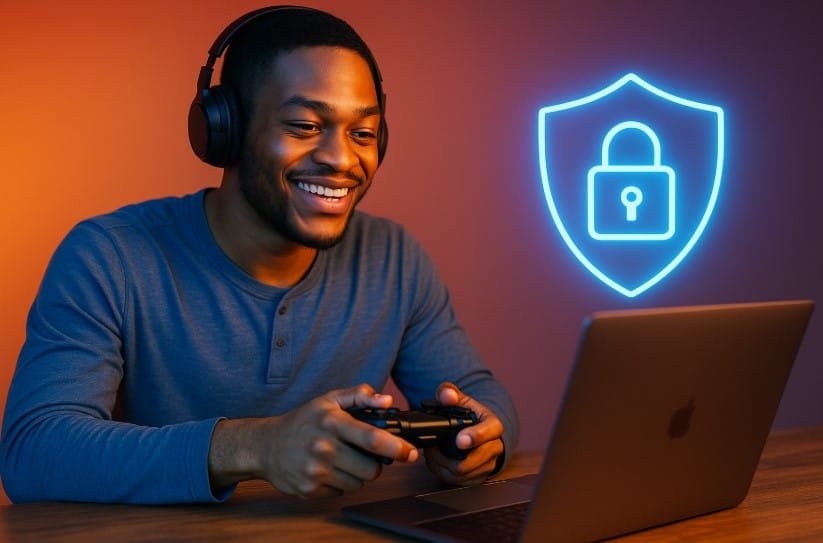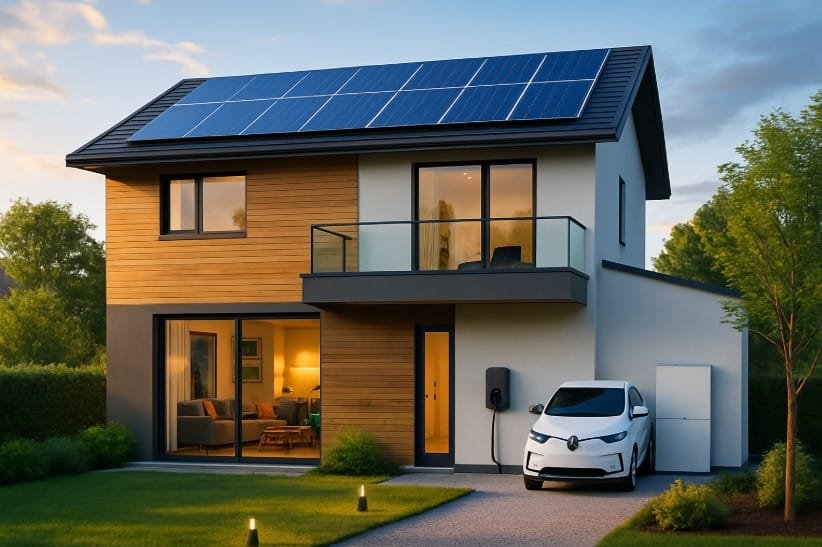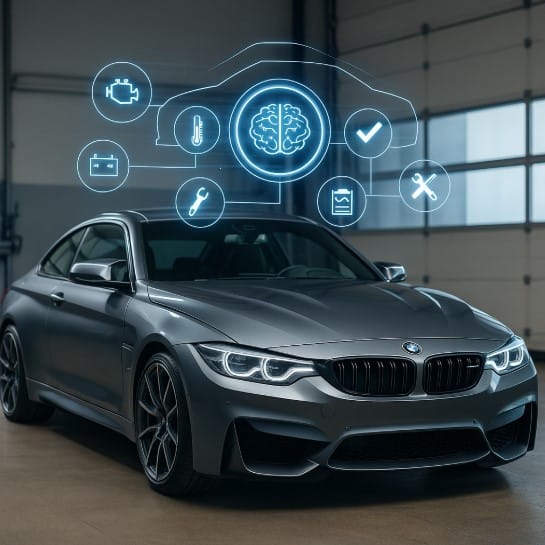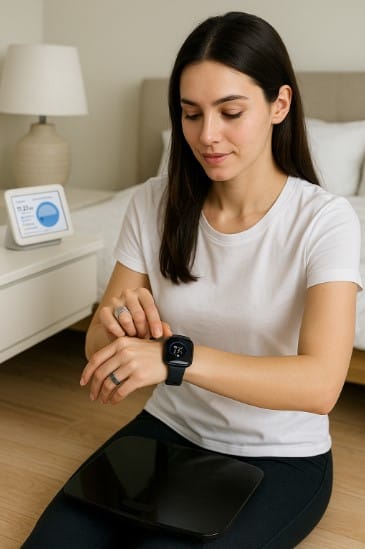Now Reading: Reliable Home Automation Solutions For Elderly Care
- 01
Reliable Home Automation Solutions For Elderly Care
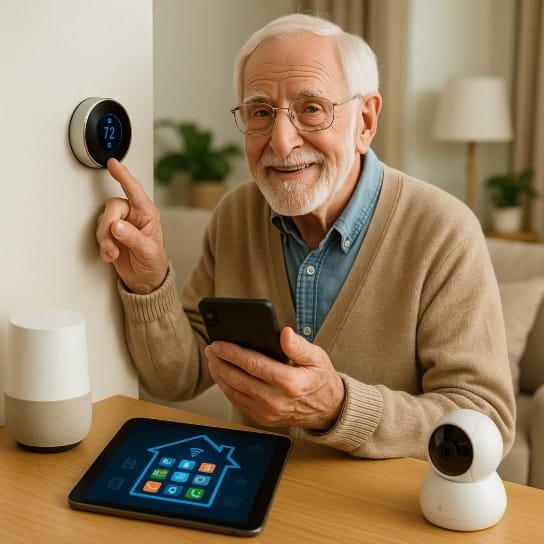
Reliable Home Automation Solutions For Elderly Care
Whether you’re supporting a parent, grandparent, or even planning for your own future, Home Automation Solutions For Elderly Care is a comforting reality making life safer, easier, and more independent for aging loved ones.
As technology gets smarter, so does the way we care for seniors at home. From voice-activated lights to sensors that alert caregivers during emergencies, these tools are reshaping what Elderly Care can look like in the years to come.
In this article, we’ll explore the top solutions designed to bring peace of mind and freedom to every generation.
Why Home Automation Solutions Matter
Home Automation Solutions For Elderly Care might sound like a high-tech idea, but really, they’re about something simple: helping our loved ones live more comfortably and safely at home.
If you’ve ever felt that little worry in your chest when your aging parent didn’t answer the phone, or wondered if Grandma remembered to turn off the stove, you’re not alone. These everyday concerns are exactly what makes smart home tools so helpful. They’re like quiet helpers, stepping in when you can’t be there in person.
Let me tell you about Jack. He’s 82, lives on his own, and still loves his morning coffee and evening news. But remembering whether he locked the front door at night or took his medication became a bit tricky over time. His daughter installed a few simple smart devices in his home, things like automatic lights, a voice assistant that reminds him about pills, and a sensor that sends her a quick text if he hasn’t moved around by noon. It wasn’t about making his home high-tech. It was about making his life easier and giving his daughter a little peace of mind.
That’s what Home Automation Solutions For Elderly Care really offer. They’re not flashy or complicated. They’re just useful tools for families who want to make life safer, more predictable, and more comfortable for the people they care about. Whether it’s voice-controlled lights or a system that checks in if something seems off, these solutions quietly support both independence and connection.
With more people choosing to age in place, stay in their own homes instead of moving into facilities, these tools are becoming part of everyday Elderly Care. And they’re surprisingly easy to use. Many smart home devices work with just a simple voice command or a button on a phone. The elderly don’t need to be tech-savvy to use them.
And beyond the buttons and screens, there’s something deeper at work: dignity. For someone who’s spent their whole life being independent, it’s hard to ask for help with small things. But with Home Automation Solutions For Elderly Care, that help is just… there. Quiet, reliable, and respectful.
So, whether you’re caring for a parent, a grandparent, or thinking about your own future, know this: Elderly Home Care doesn’t always have to mean big changes or full-time help. Sometimes, it just starts with a few smart tools that make everyday life a little smoother.
Voice-Controlled Helpers Seniors Can Rely On
One of the easiest and most effective Home Automation Solutions For Elderly Care is also one of the simplest: voice-controlled assistants. You’ve probably heard of Alexa, Google Assistant, or Siri, but what makes these smart helpers so valuable for Elderly Care is their ability to listen, respond, and make life a whole lot easier with just a few words.
Let’s take Clara, for example. At 76, she enjoys her independence, but over the years, some things have become more difficult—like remembering to adjust the thermostat, turn off lights, or even ask her husband to help her find the remote. But with Alexa, all she has to do is ask, and she can adjust the temperature in her house, set reminders for her meds, or even call her daughter without needing to pick up the phone.
These voice-activated assistants are part of the magic behind Home Automation Solutions For Elderly Care. Instead of struggling with tiny buttons or trying to remember complicated routines, seniors can simply speak their needs aloud. It’s like having a personal assistant right there at home, ready to help with anything from setting timers to checking the weather, and even controlling the lights or security systems.
But it doesn’t stop at convenience. These voice assistants can also integrate with other smart devices, like smart lights, smart locks, or even smart speakers. So, if a senior needs to turn on the lights in the kitchen at night or make sure the door is locked before bed, they can do it without getting up or worrying about forgetting. The setup is usually as easy as talking into the air.
Take a moment to imagine how this works in real life: David, a 70-year-old retiree, loves listening to music during breakfast but sometimes struggles with the remote. With Alexa, all he has to do is say, “Alexa, play some jazz,” and his favorite music fills the room. If it’s too loud, he simply says, “Alexa, lower the volume,” and it adjusts automatically.
It’s not just about convenience but about creating an environment where seniors feel empowered. With Elderly Home Care solutions like these, seniors have more control over their environment, helping them maintain their independence without feeling overwhelmed by complicated technology.
As we move toward the future, these voice-controlled systems will only get better, offering even more helpful features, from health monitoring to connecting caregivers. They’re not just about making life easier but making life safer and more connected.
Smart Safety Tools That Protect and Prevent
When it comes to Home Automation Solutions For Elderly Care, safety is at the top of the list. As our loved ones get older, we start to think about how we can help them stay safe without taking away their independence. This is where smart safety tools come into play. They’re designed to protect without being intrusive, and many of them operate quietly in the background, making sure everything is okay even when we’re not there.
Take fall detection, for example. Falls are one of the biggest safety concerns for seniors, and they can happen so quickly. But thanks to modern technology, there are now Smart Sensors that can detect a fall and alert a caregiver or family member. These devices often come in the form of wearables, like wristbands or pendants, that automatically send an alert if they detect a fall. Some can even track the person’s movement and give you peace of mind by notifying you if they’ve been stationary for too long—an easy way to check if everything’s okay.
Then, there are motion sensors. These can be placed around the house and linked to your smartphone or a family member’s device. They’ll alert you if there’s any unusual activity, such as someone getting up in the middle of the night or moving around when they usually wouldn’t. It’s a subtle, yet powerful tool that gives both the senior and their family a sense of security.
One great example of this is Smart Door Alarms. These alarms can be installed on doors and windows, sending an immediate notification if they’re opened when they shouldn’t be. If a senior is prone to wandering or forgets to lock up, this system offers a simple, yet effective solution. Imagine a family member getting an alert that their parent’s back door has opened after hours, this tool can prevent a potentially dangerous situation from escalating.
It’s not just about detecting falls or intrusions, though. Smart smoke detectors and carbon monoxide detectors are also part of the growing toolkit for Elderly Home Care. These devices don’t just beep when there’s danger, they send notifications directly to caregivers or family members, so even if the senior isn’t able to respond, help can be on the way right away.
Ultimately, these tools work together to create a protective web around seniors, ensuring that no matter what happens, help is never far away. They help you stay connected and in control while respecting the independence and privacy of your loved one. These smart safety solutions are a simple way to make sure that seniors can continue living at home, knowing they have a reliable safety net in place.
Comfort Upgrades That Make Daily Life Easier
When we think of Home Automation Solutions For Elderly Care, comfort often doesn’t get the spotlight—but it should. Feeling cozy, relaxed, and in control of your own space isn’t just a luxury; it’s a big part of staying independent and happy at home.
Small changes can make a big difference. Take smart thermostats, for instance. They adjust the temperature automatically based on your routine or can be changed with a simple voice command. For older adults who might struggle with buttons or tiny dials, this is a game-changer. If the living room feels chilly, a quick “turn up the heat” and it’s done—no fumbling with a wall unit.
Then there’s lighting. Smart lights can be set to turn on gradually in the morning, making it easier to wake up, or dim automatically in the evening to help wind down. Even better, they can be turned on with your voice or motion. Imagine walking into a dark hallway and the lights turning on just because it sensed you—it’s not magic, just thoughtful design.
Also, consider smart blinds or curtains. Many seniors with arthritis or limited mobility find it hard to open and close them throughout the day. With automation, that’s no longer a concern. The blinds can open with the sunrise and close at night, all on their own. It’s one less task to worry about, and that really adds up.
Kitchen tools are also getting a smart upgrade. Smart coffee makers, slow cookers, and even refrigerators now offer features that can help seniors maintain routines without strain. Timers, alerts, and remote controls let them cook safely and comfortably.
These may seem like small conveniences, but together, they create a living environment that adjusts to the person and not the other way around. And for someone receiving Elderly Care, that can make home feel more like home again.
Even family members and caregivers benefit. Knowing your loved one is comfortable and that their home environment is supporting them takes away a lot of the daily stress.
Comfort, in the context of Elderly Home Care, is about more than soft pillows or warm socks, it’s about freedom. And with these simple, smart upgrades, seniors can move through their day with more ease, less frustration, and a lot more joy.
Remote Monitoring That Brings Peace of Mind
One of the biggest worries for families supporting aging loved ones is simply not being there. What if something happens and no one knows? That’s where remote monitoring becomes one of the most comforting Home Automation Solutions For Elderly Care.
Remote monitoring might sound like a big, technical thing, but it’s actually pretty simple and incredibly reassuring. It allows family members or caregivers to check in on seniors from anywhere using their phones, tablets, or computers. And it doesn’t feel invasive. Most systems are designed to protect privacy while still giving just enough visibility to keep everyone safe and connected.
Let’s say your dad lives on his own, and you live a few towns over. With a smart camera placed in common areas (like the kitchen or hallway), you can glance at your phone during lunch and see he’s up, about, and fixing his favorite sandwich. Or maybe there’s a sensor on his pill dispenser that sends you an alert if he forgets his morning medication. It’s not about spying but about staying in the loop, gently and respectfully.
These systems are especially helpful for caregivers who manage Elderly Home Care from a distance. You can set up alerts that let you know if your loved one hasn’t moved around by a certain time in the morning, or if they’ve left the house unexpectedly. And if something doesn’t seem right, you can call or even speak through the system directly.
Some of the newer systems also track things like heart rate, sleep patterns, or activity levels, offering valuable insights into a senior’s health. It’s like having a soft safety net, always there, even when you can’t be.
Of course, privacy is important. And the best remote monitoring tools take that seriously. Many allow seniors to decide what is monitored and when. Cameras can be placed only in shared areas, and health data is usually viewable only by trusted caregivers.
At the end of the day, these tools aren’t about control but about connection. They give families the chance to support Elderly Care without hovering. They allow seniors to stay home, on their own terms, while knowing someone is always nearby in case they need help.
For families, it’s peace of mind. For seniors, it’s independence with a safety cushion. And for both? It’s love made practical.
Choosing the Right System for Your Loved One
After exploring all these Home Automation Solutions For Elderly Care, you might be wondering: Where do I even start? That’s a fair question. With so many options out there, choosing the right setup can feel overwhelming but it doesn’t have to be.
First, think about the individual needs of your loved one. Every person is different. Some seniors are still very active and independent, just needing a few tools for comfort and convenience. Others might need more support with safety, medication reminders, or remote check-ins. The key is to choose technology that complements their lifestyle and not complicates it.
A great place to begin is with one or two simple devices. For instance, a voice assistant like Alexa or Google Assistant can open the door to so many other tools. Once that’s in place and your loved one feels comfortable using it, you can build from there, maybe adding motion sensors, smart lights, or a video doorbell. These little upgrades start to work together, building a safer and more comfortable space for Elderly Home Care.
It’s also a good idea to involve your loved one in the decision-making. Ask them what they’d like help with or what part of the house feels like a hassle. Maybe it’s hard for them to get up and turn off the hallway light at night. Or they worry about forgetting whether the front door is locked. These conversations can guide you toward meaningful upgrades that feel helpful, not intrusive.
And don’t forget about support. Look for systems with reliable customer service and easy setup instructions. Some companies even offer professional installation, which can take the pressure off you and ensure everything is working smoothly right from the start.
Keep in mind, Elderly Care doesn’t have to mean constant supervision. The best home automation setups offer just enough help to keep things safe, without getting in the way of daily routines or independence. That balance between support and freedom is where the real magic happens.
As technology continues to grow and improve, so do the options for keeping our loved ones safe, comfortable, and connected. And while gadgets can never replace human care and love, they can make life easier for everyone involved.
So, whether you’re just starting out or looking to expand your current setup, remember this: the goal isn’t to make life complicated but to make life better.
Conclusion
Choosing the right Home Automation Solutions For Elderly Care isn’t about loading your home with gadgets. It’s about finding the right tools to bring safety, comfort, and peace of mind to everyday life. Whether it’s a voice assistant, smart lights, or remote monitoring, each step makes independent living a little easier and a lot safer.
Are you ready to take the next step?
Explore our top-rated home automation tools and guides to start building a smarter, more supportive home for your loved ones today. Check out other great articles like Top 5 Smart Home Energy Systems You Can Trust
Have questions or need help picking the right setup?
Reach out—we’re here to help you make the best choice for your family’s unique needs.
